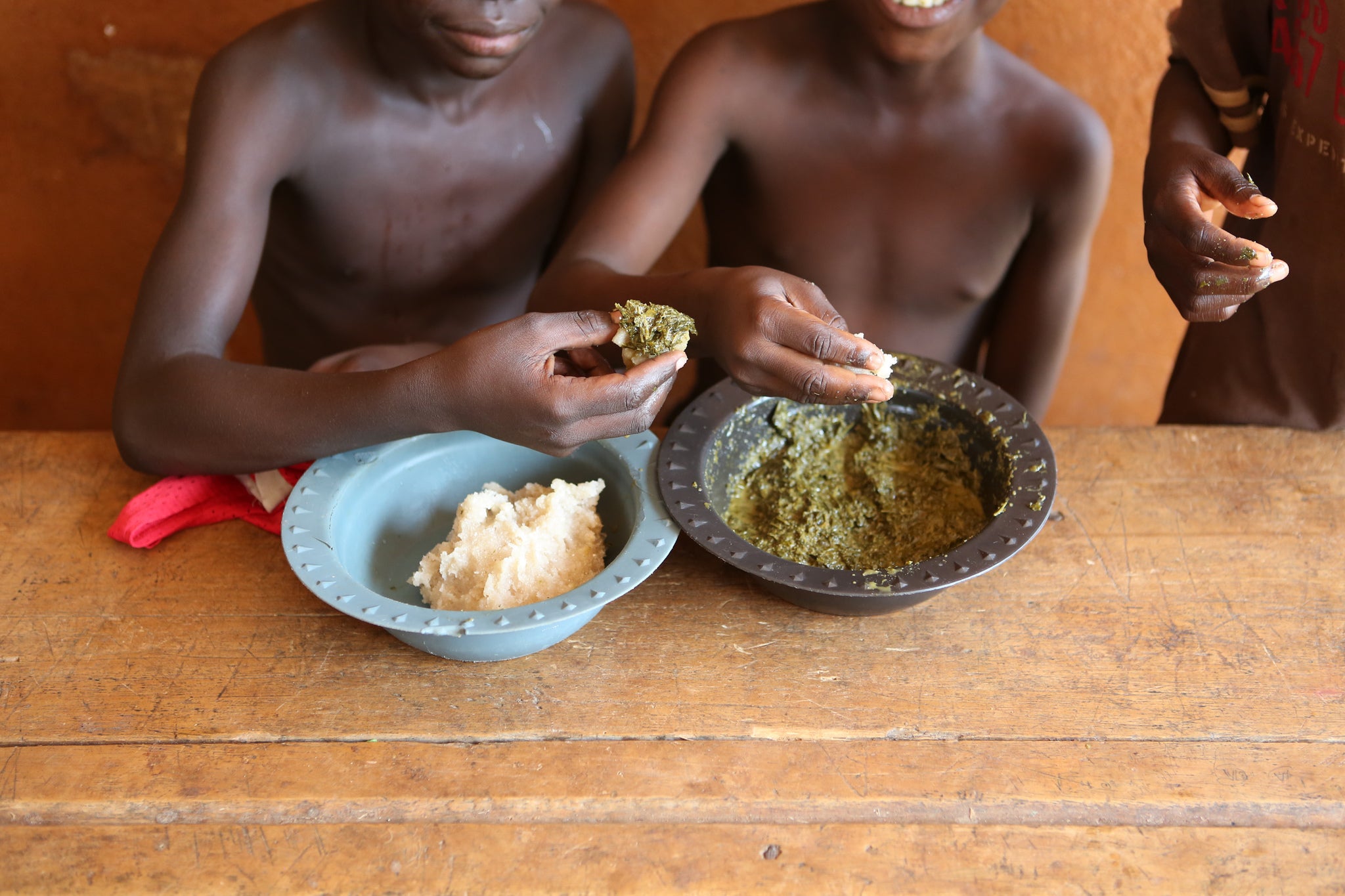Christmas with the child soldiers
Even as instability continues in the Central African Republic, Unicef are doing everything they can to give former child soldiers a proper Christmas day

Your support helps us to tell the story
From reproductive rights to climate change to Big Tech, The Independent is on the ground when the story is developing. Whether it's investigating the financials of Elon Musk's pro-Trump PAC or producing our latest documentary, 'The A Word', which shines a light on the American women fighting for reproductive rights, we know how important it is to parse out the facts from the messaging.
At such a critical moment in US history, we need reporters on the ground. Your donation allows us to keep sending journalists to speak to both sides of the story.
The Independent is trusted by Americans across the entire political spectrum. And unlike many other quality news outlets, we choose not to lock Americans out of our reporting and analysis with paywalls. We believe quality journalism should be available to everyone, paid for by those who can afford it.
Your support makes all the difference.
Please donate to our appeal for child soldiers here.
I once saw a cartoon of two red-nosed drunks, garlanded in tinsel and holly, pushing trolleys laden with festive booze round a supermarket. “Christmas,” one hiccups to the other, “we wouldn’t bother if it wasn’t for the kids.” And yet it is a truism that Christmas of all festivals is a time to focus on children for the birth of a child lies at its very heart.
In the Central African Republic, like in the UK, Christmas is primarily a time when families focus on their children. Perhaps in that former French colony, where around 80 per cent of the population are Christians – the rest being divided between Muslims and indigenous animist belief systems – Christmas is less about religion than might be supposed but it is nonetheless a major event on the calendar. It is referred to as a “holiday for children” who spend time with their families usually and, even though this is among the ten poorest countries in Africa, usually receive some small toys or gifts.
The rescued child soldiers in the Unicef-supported rehabilitation centres often don’t have families. Some have lost parents in the fighting between government and the various squabbling rebel factions in this war-torn country. Others have parents somewhere in the poverty-stricken villages of the rural areas who are not yet ready to be reunited with them; both children and adults have to go through a controlled process of adjustment after children were forced by their abductors to commit acts of violence in their home village.
Today the 25 children rescued by Unicef from the grip of the armed rebels in recent months are crammed into a centre for street children in the capital Bangui which aid workers hastily converted for them arrival last week when the official rehabilitation centre at Bria in the middle of the country was evacuated after a rebel army stormed the town. It will be their home to the children until the situation in the north-east of the country stabilises.
It is for work like this that The Independent has made Unicef its partner in this year’s Christmas Appeal to rescue child soldiers from the control of armed militias in the Central African Republic.
The converted street children centre is not a place of huge comfort but it has been kitted out with mattresses, blankets, mosquito nets, soap, water, food, tents, cooking sets, toys and school materials.
Today there will be something extra. It being Christmas Day there will be goat for dinner.
Goat is the special dish at the family table in the Central African Republic on Christmas Day. Where families in Britain all gather for turkey, here the very special treat is goat and rice.
The centre’s supervisor, Phares Fio-Demontoan, in an attempt to make the day as special as possible has invited the family of the children in the transition camp to join them for a goat-meal meal at the centre; that can be an important step in the long delicate process of bringing child and parents back together.
Those children at the centre who have no family will eat with the adults from Unicef and its partner organisations in the dusty yard outside the main centre building so that the festive plate will be a shared one for all the children there.
Then there will be games and dancing. There won’t be any Christmas tree or presents but to judge by what I have seen here in the past the dancing will be exuberant and joyous as they celebrate not just Christmas but also their freedom. Today will be a special day, says Phares Fio-Demontoan, “I am proud of the work I do; to help these children return to being children”.
Their celebrations will be meagre compared to those taking place today throughout the rest of the world, he says. But they will play an important part in helping these kids regain some of the innocence and joy of childhood. “I appeal to everyone reading these articles,” he says, “to support these children as much as they can.”
UNICEF relies entirely on voluntary donations for all its work with child soldiers. Please be as generous as you can. Click here to donate. Text CHILD to 70030 to donate five pounds. Click here to bid in our charity auction
Join our commenting forum
Join thought-provoking conversations, follow other Independent readers and see their replies
Comments